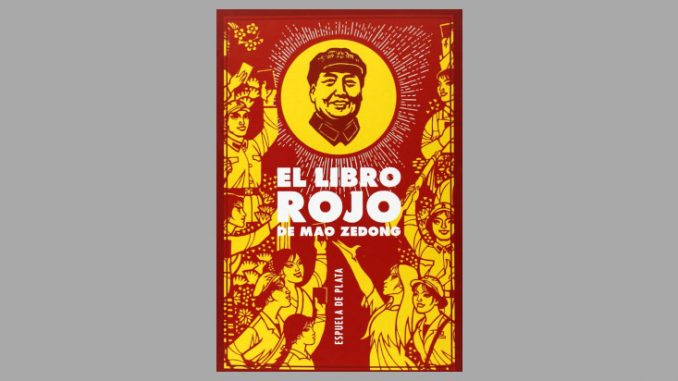
In recent days we have been able to read "Mao's Little Red Book", published by Espuela de Plata a few years ago. More specifically in XNUMX. The book, with a prologue by Antonio Molina Flores, is an exact translation of the original, published in communist China in XNUMX and spread around the globe as part of its propaganda campaign.
Actually, the book is not even the work of Mao Zedong (or Mao Tse-Tung) himself, the Great Helmsman from whom Defence Minister Lin Biao dedicated himself to collecting a good number of quotations throughout decades of speeches and statements. Despite being an eminently propagandistic work, in which Marxism, Confucianism and Leninism are mixed in a rather disjointed way and whose ultimate goal is to indoctrinate the people and the party's bases, its reading is interesting. It is outdated in many respects, but it is still useful in understanding why China is the way it is.
As is well known, at this point in China, very little remains of the initial Maoist proposal. State capitalism has been fully assumed and the "bourgeois danger" is, in addition to a reality for a growing segment of its inhabitants, an aspiration of society as a whole. Without having completely disappeared, the enormous mass of peasants that helped lift Mao to victory and supported him during the "Long March" is no longer such, replaced by factories, exports and, increasingly, new technologies. Yet, they cannot be treated in the same way now as then. However, despite the enormous social and demographic changes, a good part of the essence of the book remains intact, mutated, yes, in a totalitarian government, capable of controlling every last bit of freedom of its citizens thanks to AI and the domain of Internet.
This is precisely the most interesting thing to read "Mao's Little Red Book": the Maoist maxims, designed for another era, continue to offer the ideological basis on which population control is based, the submission of the individual to the collective, the role of the Army, etc. Also, the eternal confrontation with a capitalist West that the Party considers from its origins, the great enemy to destroy. There is therefore no possible peace, between two opposite ways of understanding the world to which, moreover, much more earthly motivations separate.
Therefore, this kind of books is not enough just to read them, they have to be interpreted. After all, decades and thousands of kilometers separate us with respect to its author and time, although not so many with respect to real socialism. Thus, when referring to terms such as "democracy", "popular" or "party", they must be placed in their correct intellectual coordinates. This is the only way to understand that some of the maxims contained in "Mao's Little Red Book" apparently even reasonable, degenerate into aberrations such as the «Cultural Revolution», with its XNUMX million deaths, or repressions such as those in Tiananmen Square.
In summary, it is a book that beyond curiosity -after all, it is almost a pop symbol, as explained in the prologue-, serves to understand the People's Republic of China a little more. Just for that reason, it is worth purchasing.

Be the first to comment